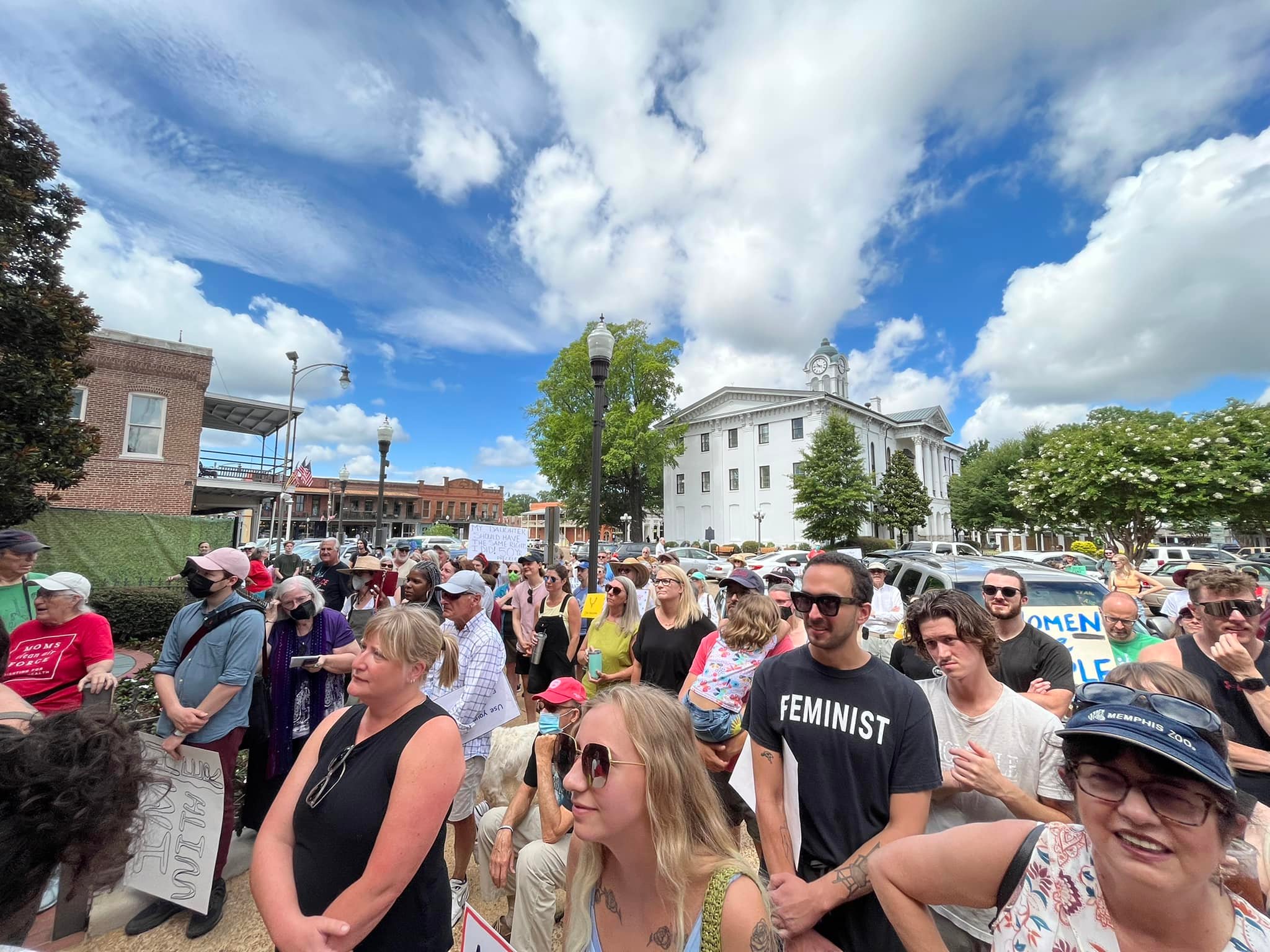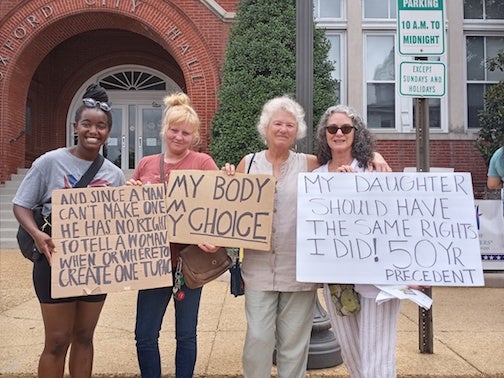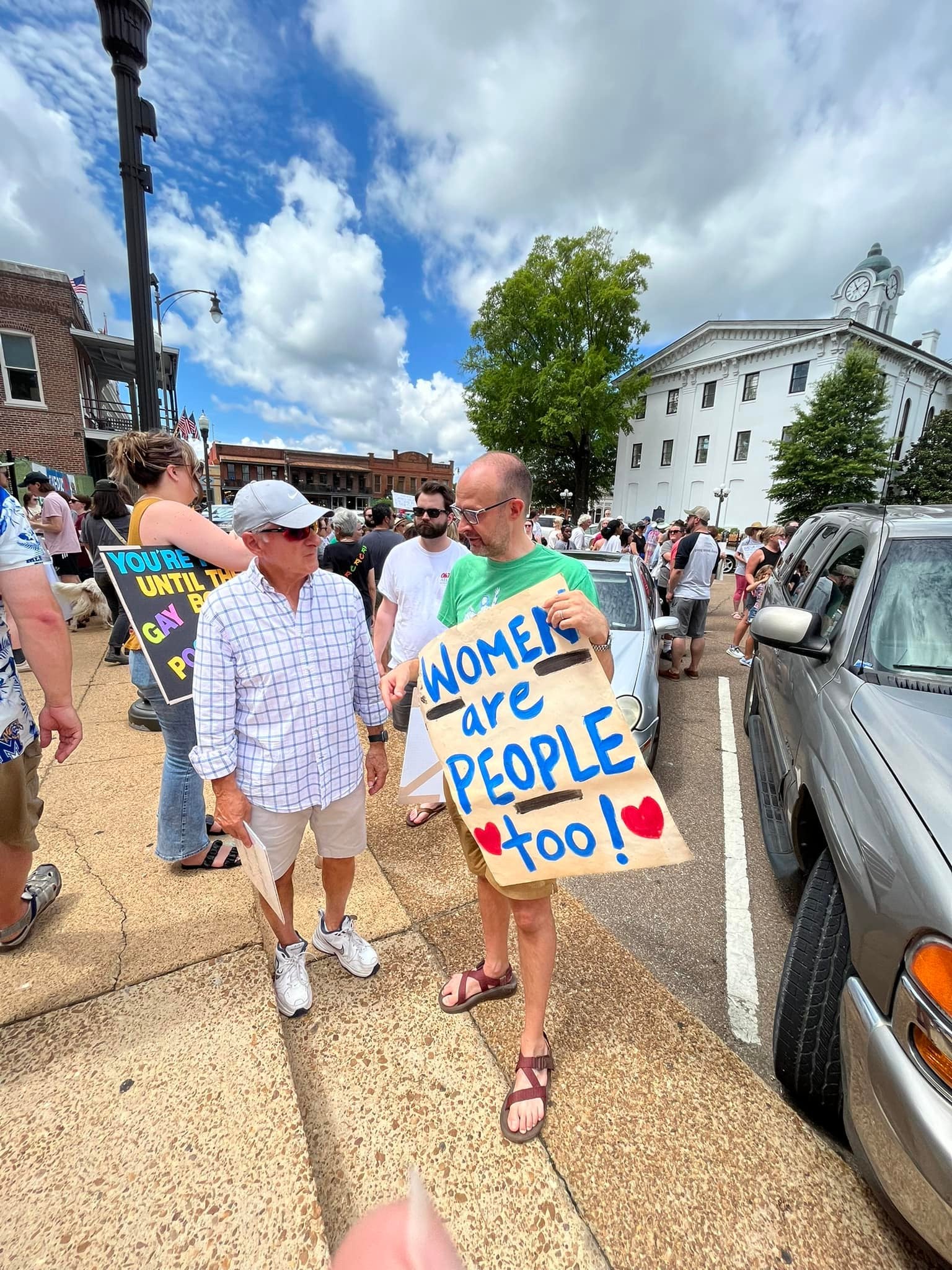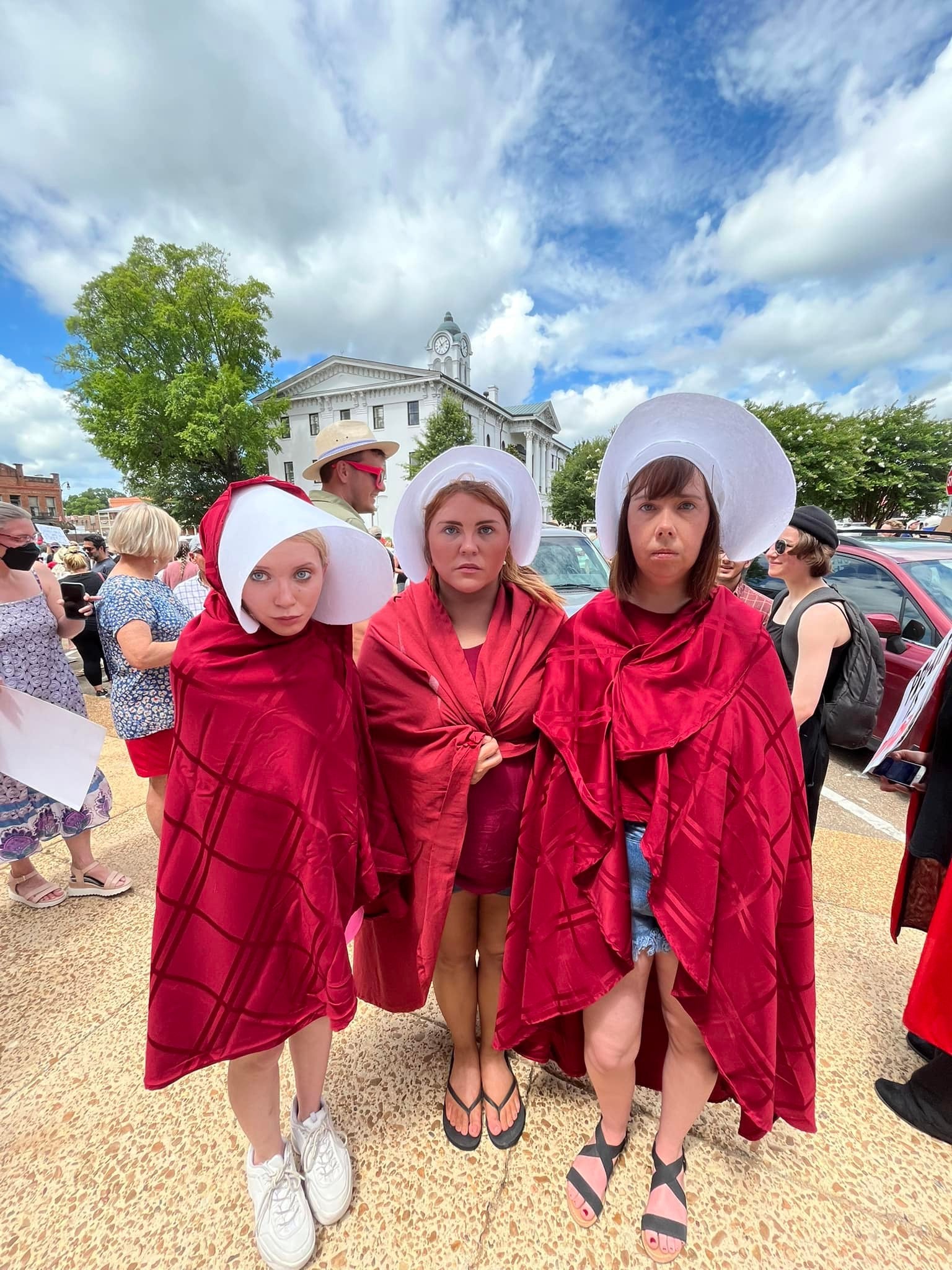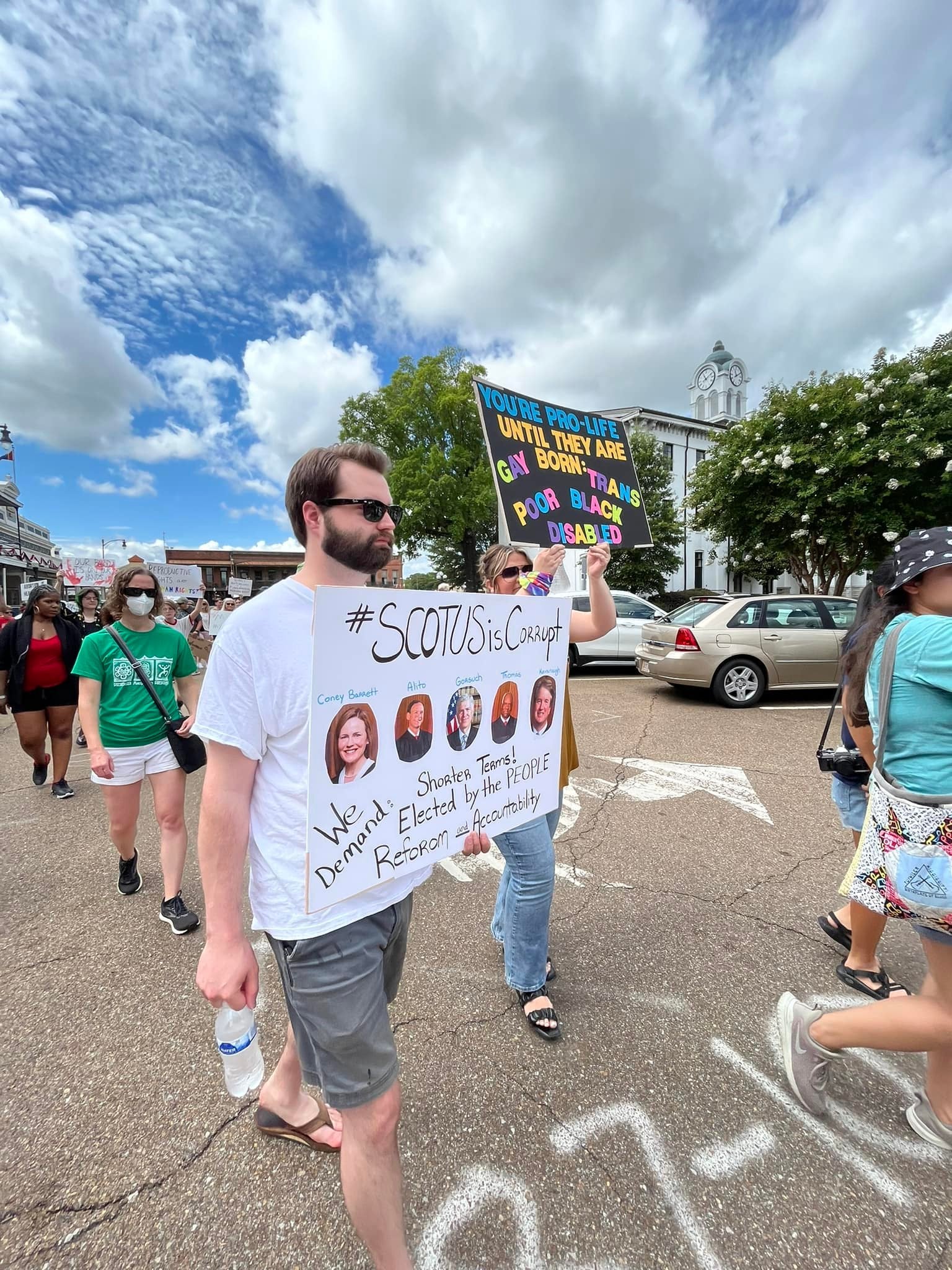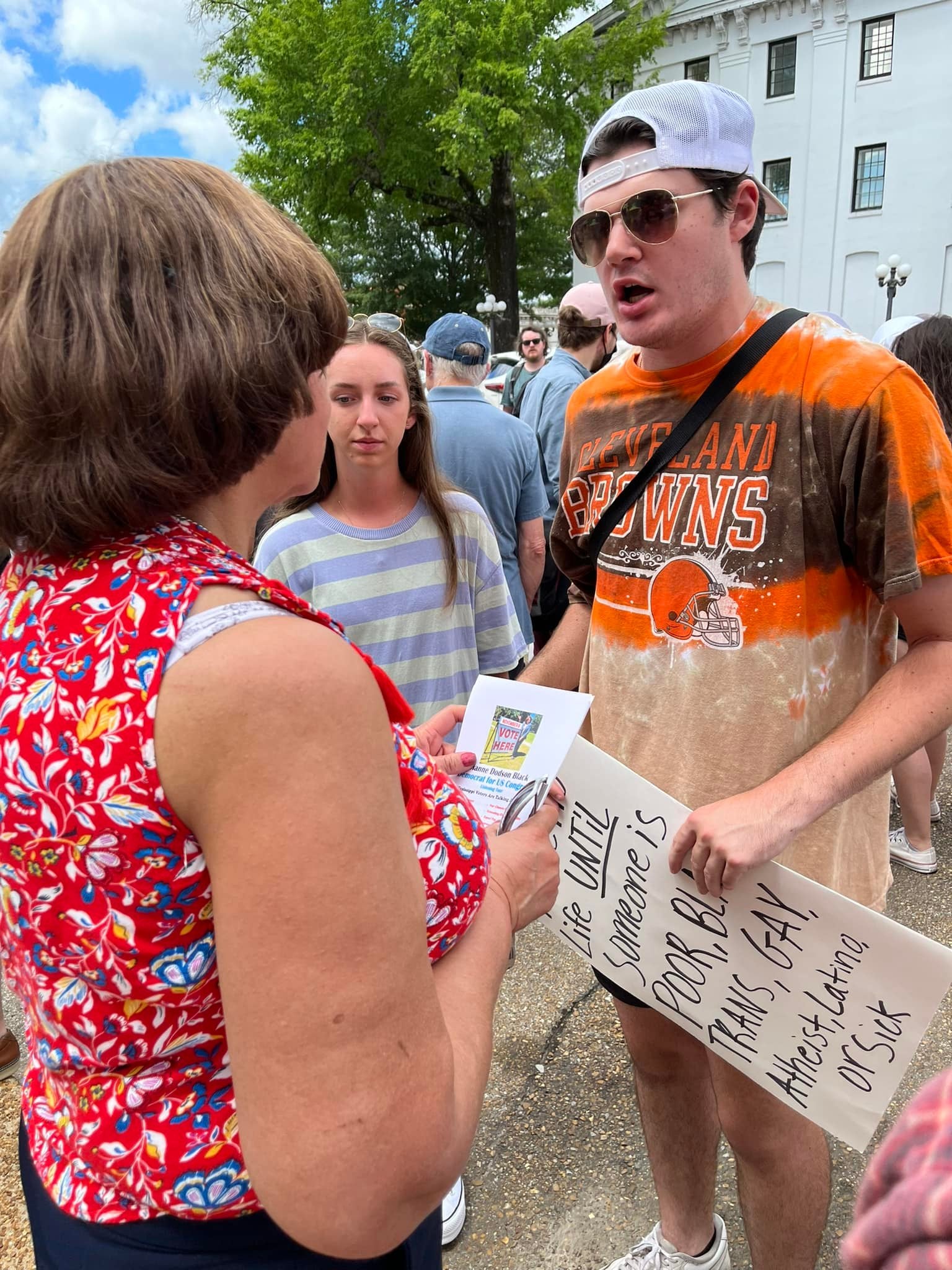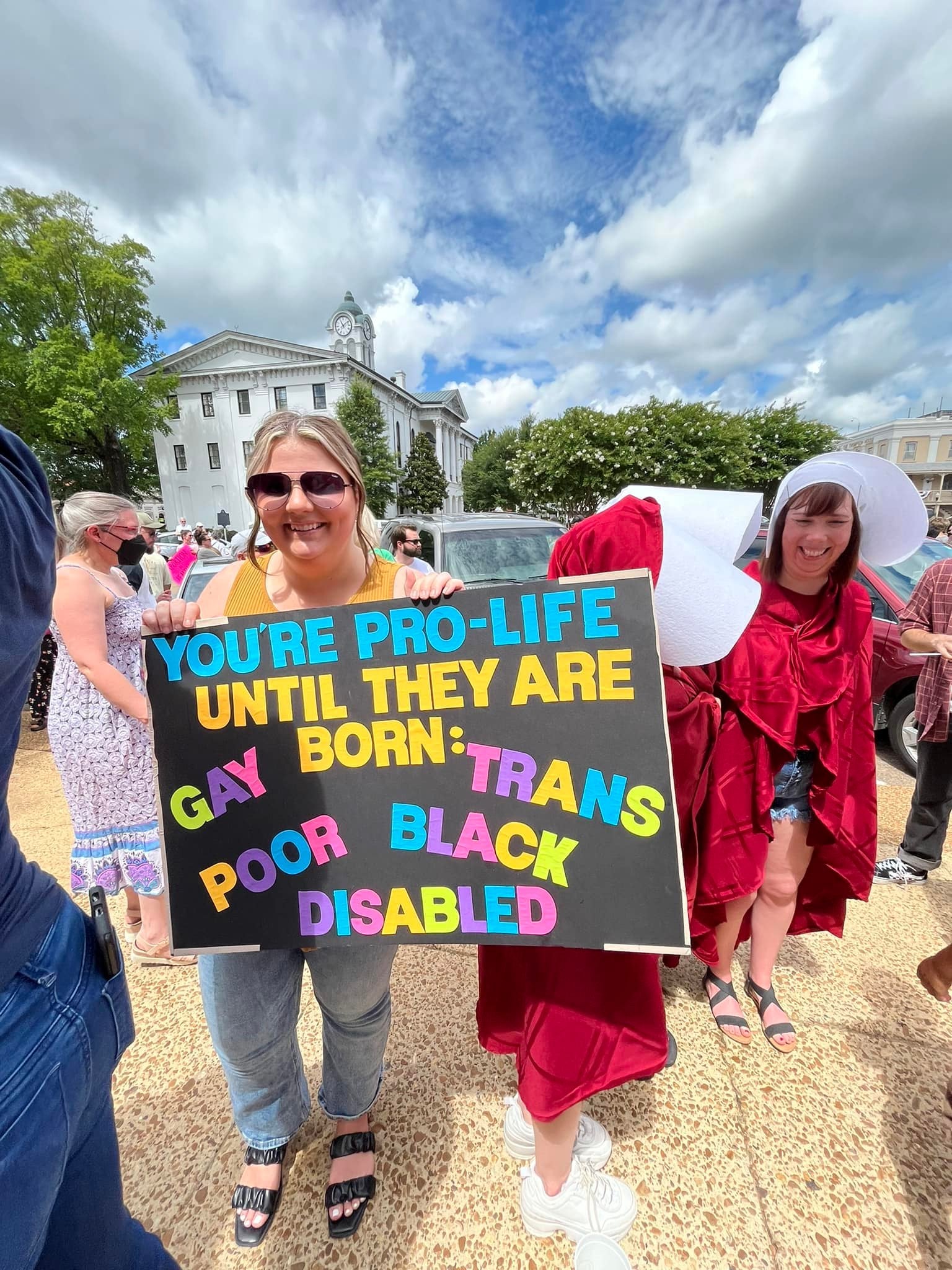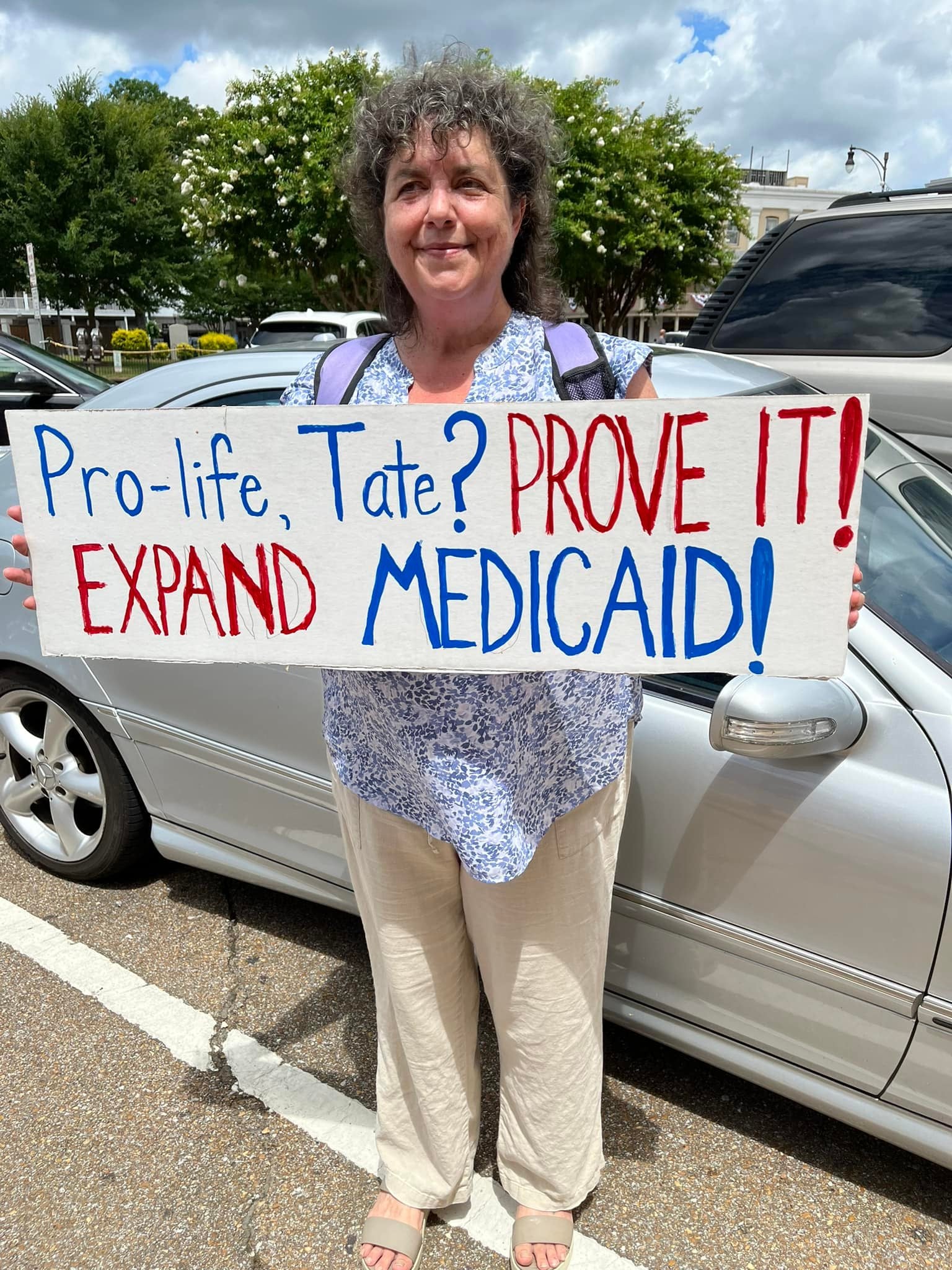Locals take a stand at the Rally for Reproductive Freedom
Published 6:08 pm Saturday, July 2, 2022
Just over a week after the United States Supreme Court overturned Roe v. Wade, a landmark case that protected citizens’ reproductive rights and bodily autonomy, local Mississippians took to protesting at Oxford City Hall for the Rally for Reproductive Freedom.
The Rally for Reproductive Freedom was planned by organizers Cristen Hemmins, Kate Kellum and Forrest Jenkins prior to the Supreme Court’s decision. Many protestors hailing from Oxford and other counties in North Mississippi appeared on the city Square to march and witness activists in the movement take the stand.
DeSoto County resident and Ole Miss alumni Tanetra Howard drove about an hour from home to participate in the rally.
“I believe that there are so many other matters that are bigger than abortion and that there are so many factors that go into pregnancy,” said Howard. “The fact that a small group of individuals have stated for the entire country what we’re able to do with our bodies and how we’re able to protect ourselves is very negligent on their part and it comes from a very privileged perspective.
“A large majority of women especially Black and brown women such as myself will not have those opportunities and will either be criminalized for them, face death or a host of other scary outcomes.”
Elisa Fuhrken of Oxford said women’s rights are human rights. At the rally, Furhken displayed a sign that read: If you cared about women then you would be pro-choice.
“I do think this is an issue of not seeing women as just their body, as exploited labor or as not human, but as a person with choices,” she said. “That’s why I march.”
Oxonian Joshua Nguyen says that men should be held accountable for their role in the reproductive movement, whether it is actively taking those rights away or being silently complicit.
“I wanted not to be complicit,” Nguyen said. “I see a lot of men sitting back and I wanted to not do that. I wanted to show my support and that this issue effects everyone.”
Though the decision was a blow to pro-choice advocates, many protestors expected the outcome, not only due to the Supreme Court draft opinion leak but the political direction the country has been heading towards.
“I mostly just felt a lot of grief,” said Fuhrken. “I’ve been living in Mississippi for seven years and it’s really important that people know that there’s only one abortion clinic in Jackson, Mississippi that provides safe healthcare to women.”
Mississippi was one of several states with a “trigger” law contingent on the U.S. Supreme Court overturning Roe v. Wade, it’s 1973 ruling that legalized abortion nationwide. Upon the decision, the clinic was due to close on July 7, only 10 days after a notice was published by Mississippi Attorney General Lynn Fitch.
“I felt a lot of grief, especially for women of color, women in poverty and queer and trans people,” Fuhrken continued. “A lot of grief for the people that will be affected more than someone like me who has the privilege.”
“One of the unfortunate parts of being Black and being a woman in America is always being disappointed and non-surprised,” Howard said. “Whether it comes to Black Lives Matter or police brutality or whether it comes to abortion, your options and access to freedom are always being attacked.”
Howard said the decision was an expected outcome of the Supreme Court becoming more conservative under former President Donald Trump’s term. During his term, Trump appointed three conservative judges to court: Neil Gorsuch, Brett Kavanaugh and Amy Coney Barrett.
Gorsuch, Kavanaugh and Coney Barrett voted to overturn Roe along with Chief Justice John Roberts and Judge Samuel Alito, both appointed by President George W. Bush and Judge Clarence Thomas, appointed by President George H.W. Bush.
“I believe that once the Supreme Court switched to be conservative as it is under Trump,” said Howard. “And it’s a bit frustrating that the Democrats and Independents that sit in Congress didn’t act sooner to end the filibuster or create whatever laws were necessary to protect our rights.”
Despite what feels like a major loss, many protestors say action can still be taken in support of the reproductive freedom movement. Howard said, for pro-choice advocates, birth control measures like vasectomies and IUDs will be important now more than ever, but it is also crucial to vote.
“Voting would be number one,” said Howard. “Seriously, vote. Vote in your local elections and vote in your city and state elections. Vote at every level because so much of that determines who creates laws for us and what those laws look like. And offer support and be listening ear for the women in your life at this point in time because I don’t think for a lot of people it’s truly set in what this means.”
On Friday, a Mississippi judge has set a hearing in a lawsuit by Jackson abortion clinic. The suit seeks to block a law that would ban most abortions. Such a ruling would allow the clinic to remain open.
The suit was filed Monday in Hinds County Chancery Court, three days after the Supreme Court overturned Roe v. Wade in a case that originated in Mississippi.
The clinic, Jackson Women’s Health Organization, has continued to see patients, but owner Diane Derzis said it will close if the near-ban on abortions takes effect.
The law is set to take effect two days after Tuesday’s hearing. The law says if Roe v. Wade is overturned, abortion will be legal only if the pregnant woman’s life is in danger or if a pregnancy is caused by a rape reported to law enforcement.
The clinic’s lawsuit says the Mississippi Supreme Court issued a ruling in 1998 that recognized a right to abortion in the state constitution.
All four Hinds County chancery judges recused themselves from the case. They cited rules that say judges should not handle cases that might present a conflict, but they did not specify what the conflicts would be.
Supreme Court Chief Justice Michael Randolph late Thursday appointed another chancery judge, Debbra K. Halford, to hear the case. Halford is from a chancery court district in the southwestern part of the state.
The hearing Tuesday is scheduled to take place in Hinds County Chancery Court. If Halford grants the clinic’s request for a temporary restraining order to block the new law from taking effect, that decision could be quickly appealed to the state Supreme Court.


